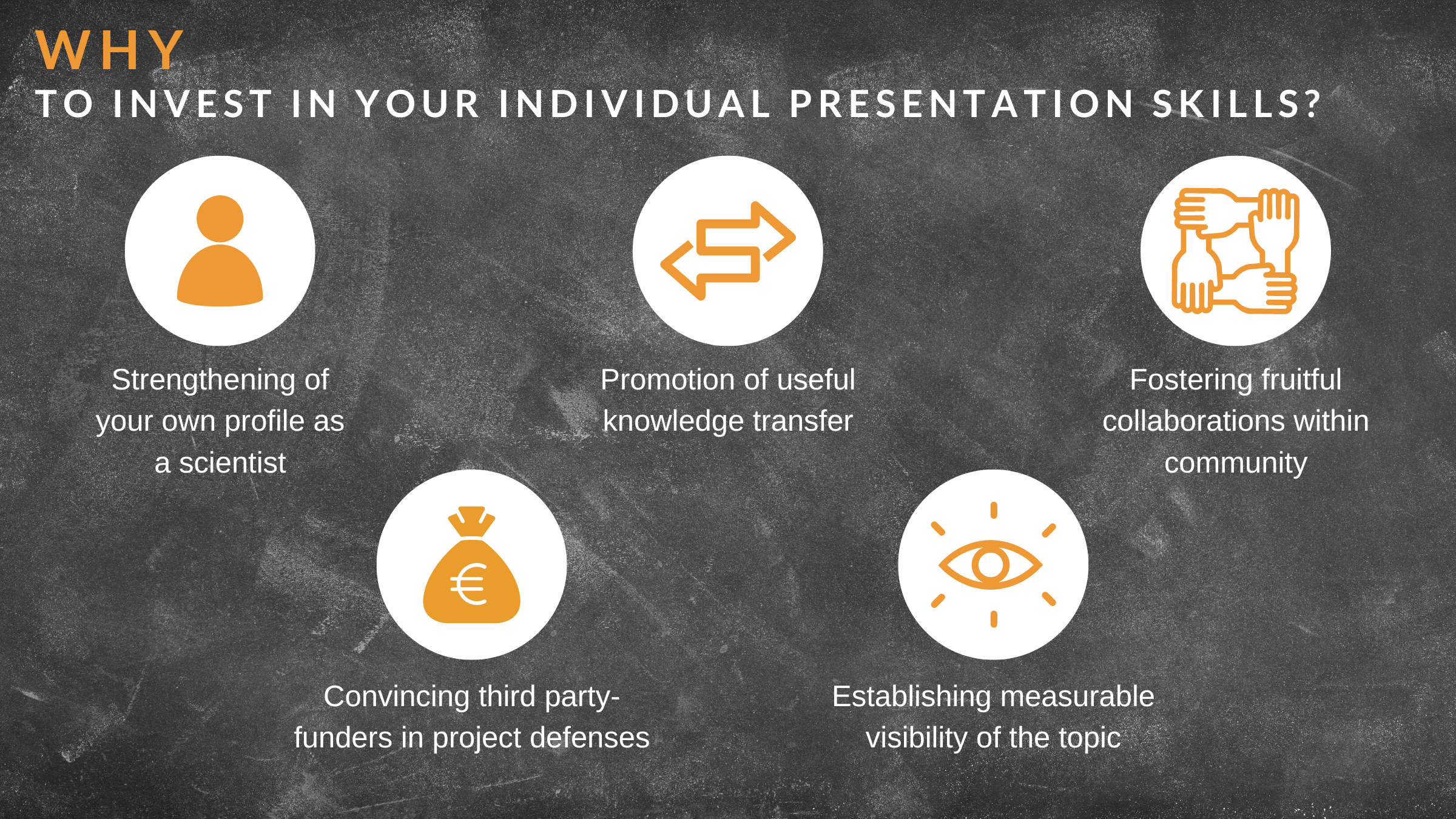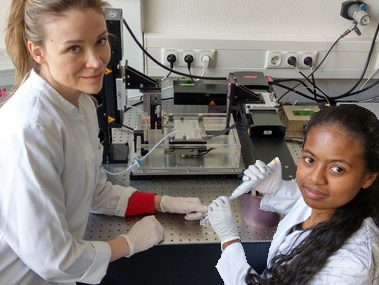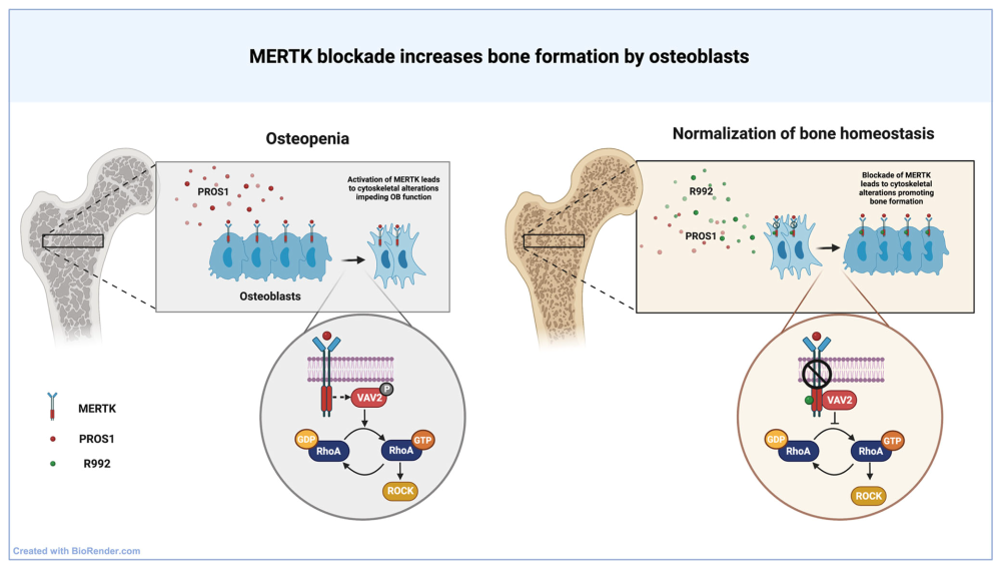Andy Göbel, group leader and presentation trainer
Developing excellent presentation skills is becoming increasingly important in science. This is not surprising given the number of talks you listen to and those you have to hold in your daily routine. As a PhD student, for example, you will need to present your project to your colleagues in seminars, to the scientific community at conferences and eventually, you will defend it to obtain your PhD.
You might think, it´s all about your project, right?
The truth is, it’s not! As you follow a career as a postdoc, group leader, or professor, you will realize how the content, the format, the style of your presentations, and the audience will become increasingly diverse and complex. Besides the wide spectrum of roles you have to fulfill being a project leader, a scientific expert, a student supervisor, a lecturer, or a spokesperson, also the goals you are pursuing differ and may range from informing, teaching, defending, or recruiting when speaking to an ever-growing target audience.
Therein, powerful presentations can have a profound impact on your career apart from being just informative on your breakthrough findings. Preparing a talk requires expertise, experience, knowledge, and a clear vision of your scientific mission. If done well, impactful presentations will strengthen your profile as a recognized researcher. Moreover, entertaining and focused talks will promote knowledge transfer to a number of stakeholders including patients, the interested public, and students who you want to get excited about the topic. Likewise, convincing presentations will not only help to foster collaborations in project approaches that need interdisciplinary interaction, but also to acquire funding in case of in-person consortium defenses. Last but not least, presentations have the power to establish measurable visibility of a topic that might normally be neglected, for example in the case of rare diseases. Especially in consideration of information flooding, the increasing demands on scientists, and the growing number of their responsibilities, while having less time, makes on-point presentations essential in science. The good news is, we all are able to learn how to present well.




